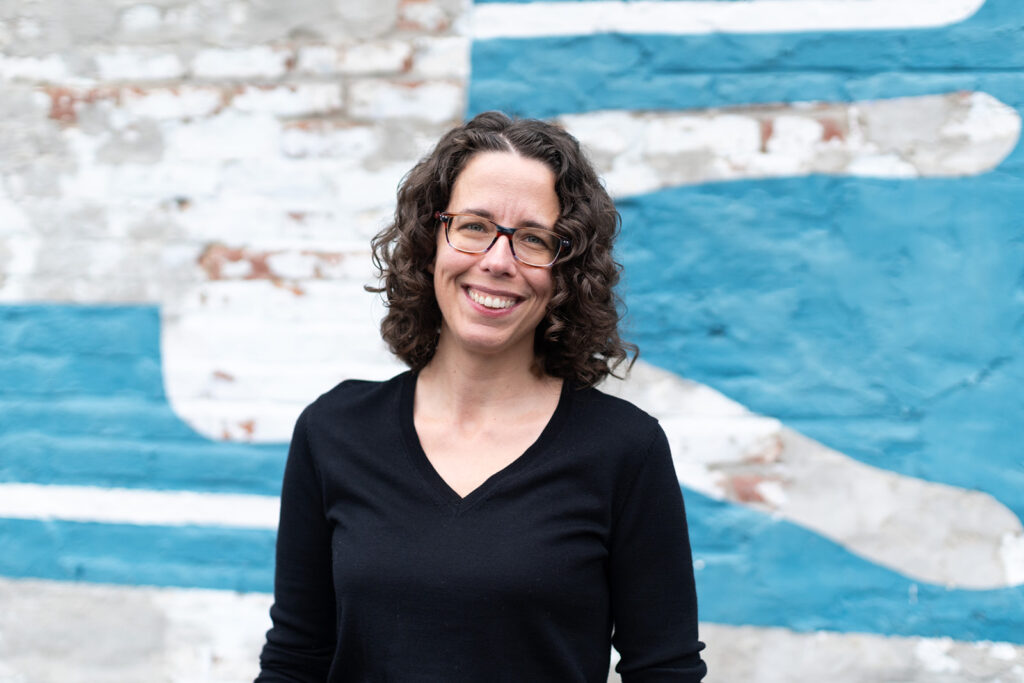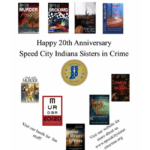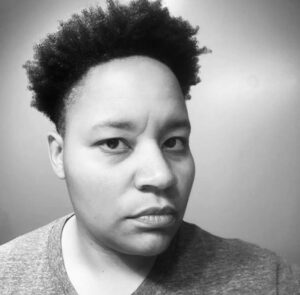Meet MWW24 Keynote Speaker Jane Friedman
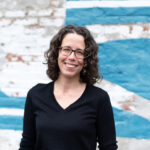 Jane Friedman has 25 years of experience in the media and publishing industry, with expertise in business strategy for authors and publishers. She’s the co-founder and editor of The Hot Sheet, a paid newsletter about the book publishing industry, and has previously worked for Writer’s Digest and the Virginia Quarterly Review. In 2023, Jane was awarded Publishing Commentator of the Year by Digital Book World; her newsletter was awarded Media Outlet of the Year in 2020.
Jane Friedman has 25 years of experience in the media and publishing industry, with expertise in business strategy for authors and publishers. She’s the co-founder and editor of The Hot Sheet, a paid newsletter about the book publishing industry, and has previously worked for Writer’s Digest and the Virginia Quarterly Review. In 2023, Jane was awarded Publishing Commentator of the Year by Digital Book World; her newsletter was awarded Media Outlet of the Year in 2020.
In summer 2023, Jane had a disconcerting experience with AI book fraud. Here’s a roundup of the extensive coverage and interviews about what happened.
Jane’s most recent book is The Business of Being a Writer (University of Chicago Press), which received a starred review from Library Journal. Publishers Weekly said that it is “destined to become a staple reference book for writers and those interested in publishing careers.” A second edition will release in spring 2025.
Jane’s expertise on publishing has been featured across countless media outlets, including The New York Times, The Atlantic, CNN, Wired, BBC, The Guardian, CBC, The Washington Post, Fox News, and NPR. She offers a free newsletter, Electric Speed, published since 2009, that has more than 25,000 subscribers. Her paid newsletter, The Hot Sheet, has more than 2,500 subscribers. In collaboration with The Authors Guild, she wrote The Authors Guild Guide to Self-Publishing.
Since 2001, Jane has delivered keynote talks across the globe, including the Writer’s Digest annual conference, Stockholm Writers Festival, San Miguel Writers Conference, The Muse & The Marketplace, and Digital Book World.
She’s also served on grant panels for the National Endowment for the Arts and the Creative Work Fund, and is on the advisory board for the The Facing Project. For a while she flirted with academia, holding positions as a professor of writing, media, and publishing at the University of Cincinnati and University of Virginia.
In her spare time, Jane writes creative nonfiction, which has been included in the anthologies Every Father’s Daughter and Drinking Diaries. If you look hard enough, you can also find her embarrassing college poetry and secret newsletter.
Find out more about Jane on her website, where you’ll also find access to vast resources on all things publishing. We highly recommend you subscribe to her blog and her newsletters to receive articles in your inbox about writing and publishing, plus information about upcoming classes.
***
Jane’s Friday evening keynote, “2003 vs 2024: What’s Changed and What Hasn’t About Writing & Publishing,” celebrates her TWENTY YEAR ANNIVERSARY with Midwest Writers Workshop. She will also be participating on the panel, “Live Long and Try to Prosper: The New Frontier of Artificial Intelligence and Creative Writing.”
Check out the Full Faculty and the Conference Schedule…
…then visit our Registration Page!
Q&A with Jane
In 2016 or so, I said the words “I want to be a writer” and dedicated myself to improving my craft and knowledge of the publishing industry. One of the first workshops I signed up for was Jane Friedman’s, long before I understood what a colossus she is. All I remember thinking when I left the room was, “Boy, do I have my work cut out for me.” But she delivered her talk in such a way, with such detailed information, that I felt equipped to handle what was ahead of me.
There are attendees and writers who have been familiar with Jane and attending her talks and workshops *much* longer than I have and they still come to her classes and workshops because they know they’ll learn something new each time. And anytime someone asks me a question about publishing, I start with “Have you heard of Jane Friedman…?”
The Midwest Writers Workshop is beyond fortunate to have her with us. As the literary and publishing industry develops and changes (ever more rapidly, it seems), Jane Friedman has her finger on the pulse. As always, it is my honor to interview her. Her responses always leave me with things to think about. She is nothing if not perspicacious!
***
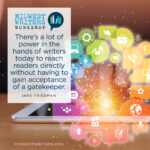 MWW: What do you think is the most significant *positive* change in publishing over the last twenty years, and how does this impact writers?
MWW: What do you think is the most significant *positive* change in publishing over the last twenty years, and how does this impact writers?
JF: The ease with which anyone can publish their work in print or digital form and reach readers without needing a publisher/editor/agent to accept them. While editors and agents still serve important roles in the industry, no one needs to seek permission to bring their book or their writing into the world. And it can be done on almost any budget. There’s a lot of power in the hands of writers today to reach readers directly without having to gain acceptance of a gatekeeper. That was not the case when I started out in the industry in the late 1990s.
MWW: Conversely, what’s the most negative change?
JF: The fact anyone can and does publish their work, anywhere and everywhere, both high and low quality, for free and for pay. There’s so much competition and it’s harder to get your work noticed. It requires more marketing and promotion work for the writer and a deeper understanding of your readership.
MWW: Based on what’s changed on the last twenty years and the current state of publishing, are there any predictions you can comfortably make about the future of the industry?
JF: No matter what publishing companies or publishing models come and go, no matter what technologies or marketing platforms come and go, writers will still be doing what they’ve always done: creating stories, connecting withreaders, and evolving their business model as needed.
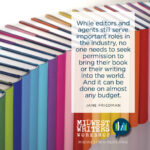 MWW: You have had a negative and well-broadcasted debacle with AI hijacking your name and voice (for those readers who are unfamiliar with Jane’s AI debacle, learn more). Still, do you think there are positive aspects to AI’s presence in literature?
MWW: You have had a negative and well-broadcasted debacle with AI hijacking your name and voice (for those readers who are unfamiliar with Jane’s AI debacle, learn more). Still, do you think there are positive aspects to AI’s presence in literature?
JF: Yes, I use AI almost every day as part of my business and it’s already saved me countless hours of time. While there are legal issues and privacy issues that have to be sorted through, writers aren’t well served by avoiding AI or being afraid. (I would also question whether anyone has indeed avoided AI. If you use a smartphone, it’s too late.) I think it’s much better for writers to experiment with the technology and understand how it might be used as part of their daily work or creative practice—and how it might be used by others.
The future for all writing and publishing will involve some amount of AI assistance and it will become part of digital literacy, just as we all now rely on tools like Scrivener or Word to produce higher quality work and be more efficient.
MWW: Is there anything an author can do to safeguard their work and their name? And if an author finds AI content listed under their name, what actions can they take to have these “works” removed from a platform, or their names detached from the “work”?
JF: For better or worse, there’s not much you can proactively do, aside from setting up Google alerts for your name/books and keeping an eye on Amazon or Goodreads if you have books on the market. I’d recommend any active, professional author become a member of the Authors Guild so you have the power of their advocacy and legal team if you’re targeted by bad actors. They’re much better positioned to deal with Amazon or other big companies when infringement or fraud occurs. You can always submit takedown requests to Amazon or other retailers/websites if you find fraudulent work available, but such attemptsm can be slow and not always successful.
MWW: What does AI think is the most significant negative change in the publishing industry over the last 20 years?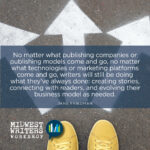
JF: When I asked ChatGPT to answer this question, it said, in part, “One of the most significant negative changes in the publishing industry over the last twenty years is the increasing market dominance of a few large platforms, particularly Amazon.” Of course, this is both a positive and a negative, since self-publishing authors have used this to their advantage.
ChatGPT went on to say, “With millions of titles available, new and lesser-known authors face significant challenges in gaining visibility. The algorithm-driven nature of these platforms favors established bestsellers and popular genres, making it difficult for diverse voices and unique content to find their audience.” Yes, it can make it difficult. But these platforms also make it possible for authors to profitably publish for niche audiences, if they know how to reach them. If authors rely on retailers or platforms like Amazon for their visibility without building long-term reach to their readership, they will certainly be vulnerable to Amazon’s whims and algorithms.
Join us for #MWW24!
We’ve put together a broad range of workshops led by top-notch faculty so that you can reach new heights with your writing alongside brilliant writers from the Midwest and beyond!
*Attend online or in-person*
MWW is dedicated to building a community where writers can network with others and grow.
Click Here to Register for the In-Person Experience
Click Here to Register for the Virtual Experience
MWW24 Scholarships Available
Midwest Writers Workshop aims to serve all writers from all backgrounds at every stage of their journey. To this end, we extend an invitation to apply for a scholarship to those who might not otherwise be able to attend our conference, which is an experience that fosters writing growth and community.
Click Here for More Info on Scholarships and to Apply
MWW24 Advertising Opportunities
Advertising opportunities are available for all! In our conference program, newsletters, or our website Bulletin Board. Services for writers? New book to promote? Business cards from registered attendees? We’d love to share!
(Note: advertising is not limited to attendees but is subject to MWW Board review)
Click Here for More Info on Advertising with MWW
Thank You to Our Platinum Sponsor:
Speed City Indiana Sisters in Crime

